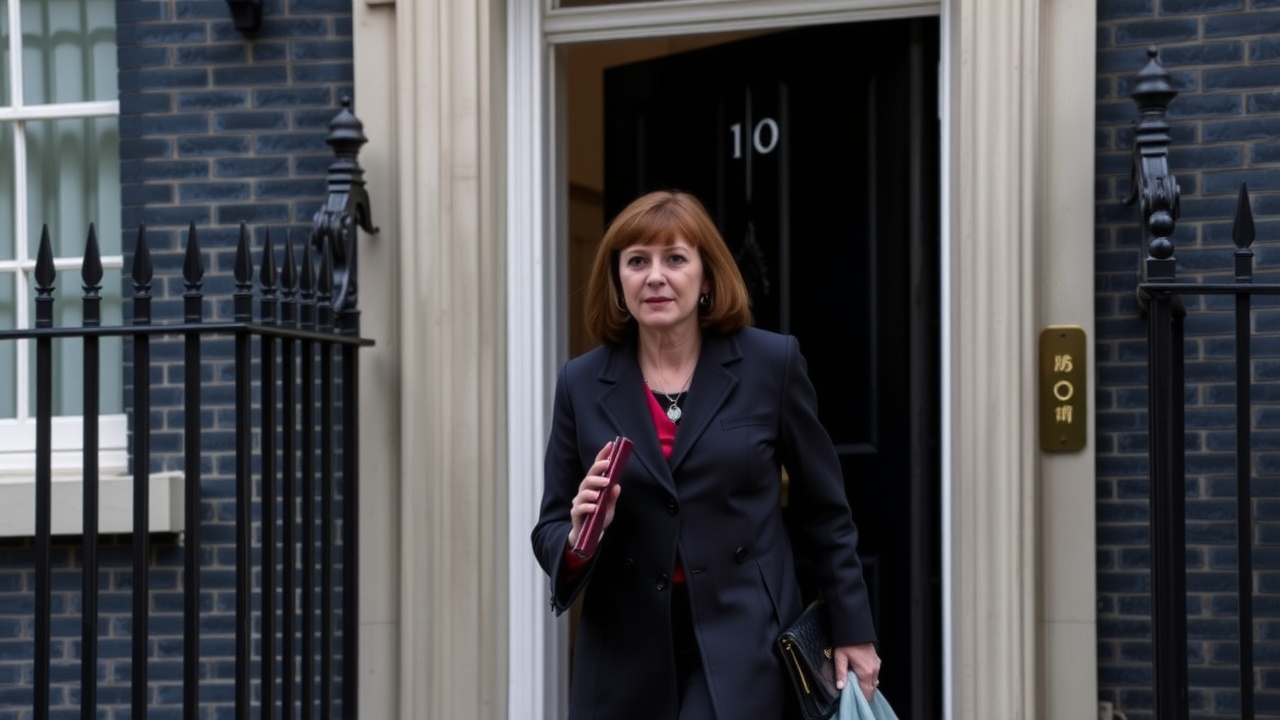
Chancellor Rachel Reeves now has £23 billion less than she had anticipated after the fiscal watchdog downgraded its capital gains tax revenue forecast
When it comes to capital gains tax (CGT) revenues, Chancellor Rachel Reeves may have less money than she had anticipated.
Office for Budget Responsibility (OBR) downgraded its five-year CGT forecast by 23 billion in a report released Wednesday along with the Spring Statement.
There have been downgrades in each of the forecast period's years, with a range of 2 to 4 billion to 5 to 5 billion.
The biggest downgrades, which occur starting in 2027, are attributed by the fiscal watchdog to "updated data on the composition of liabilities" and modifications to the taxation of carried interest.
As of April 2026, carried interesta type of performance-based compensation that is frequently used in the investment sectorwill be subject to income tax instead of capital gains tax.
According to Charlene Young, senior pension and savings specialist at investment platform AJ Bell, Reeves' decision to raise CGT rates in the previous autumn budget may also have contributed to the downgrades.
Young makes reference to the Laffer Curve, an economic theory that illustrates the connection between tax rates and tax receipts. As per this model, raising taxes beyond a particular "sweet spot" causes investor behavior to change to the point where revenues decline.
One way to do this would be to postpone or even completely avoid capital gains and instead hold onto assets.
"One of the reasons the rumored equalization of income tax and capital gains tax rates didn't happen in October was because of the theory," Young says.
According to the government's own estimates, doing this would have resulted in a £2.05 billion loss for the Exchequer by 2027 - 2028.
CGT forecasts were downgraded by 23 billion.
Over the next five years, HMRC is now anticipated to collect 121 billion in CGT, down from earlier projections of 144 billion. The shortfall has been described as a "black hole" of 23 billion by AJ Bell.
It is anticipated that CGT receipts will nearly double over the next five years, from roughly 13 billion in 2024 - 2025 to 26 billion in 2029 - 2030, even though they have been revised down.
The source is the Office for Budget Responsibility and the Office for National Statistics.
Is Reeves going to have to pay taxes somewhere else?
The total tax revenue forecast remained mostly unchanged from October, even after the downgrades to CGT.
Despite this, analysts contend that Reeves will find it difficult to avoid tax increases in the Autumn Budget of 2025, especially in light of high borrowing costs, sluggish economic growth, and pressing spending needs.
"We don't think that defense will be the only department requiring fresh cash injections over the coming years," stated James Smith, a developed markets economist at financial institution ING. "The UK's public finances are operating on increasingly fine margins."
Without additional improvements in GDP growth or a decline in gilt yields, we believe that this will probably require additional tax increases.
Smith notes that despite the OBR's improvement in its growth projections for 2026 - 2030, there was a "general impression that it was doubtful about the growth-enhancing aspects of the government's recent announcements."
He believes that eventually the OBR may be compelled to "throw in the towel" and cut them back.
The government has put itself in a difficult position after ruling out increases to VAT, employees' national insurance, and income tax during the general election.
It might ultimately be compelled to take into account measures like lowering the annual cash ISA allowance, tightening inheritance tax gifting regulations, or freezing income tax thresholds past 2028.














Leave a comment on: Will Rachel Reeves have to search elsewhere because she faces a "black hole" of pound 23 billion in capital gains taxes?